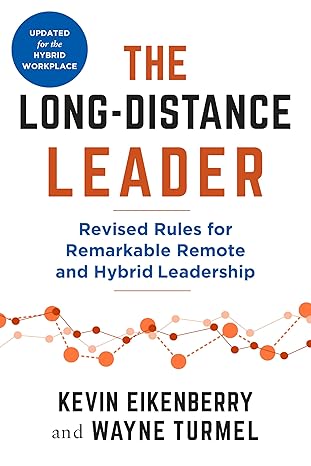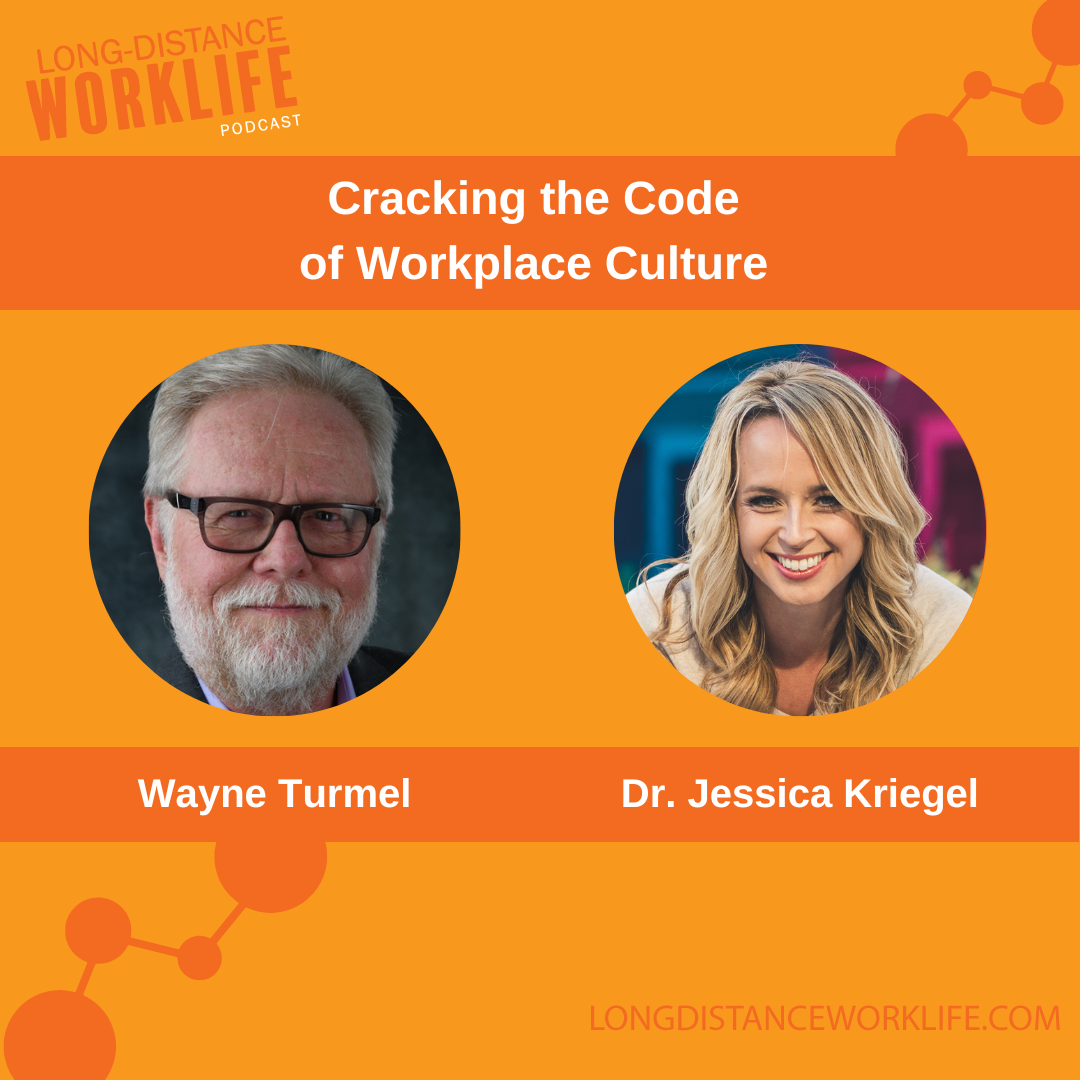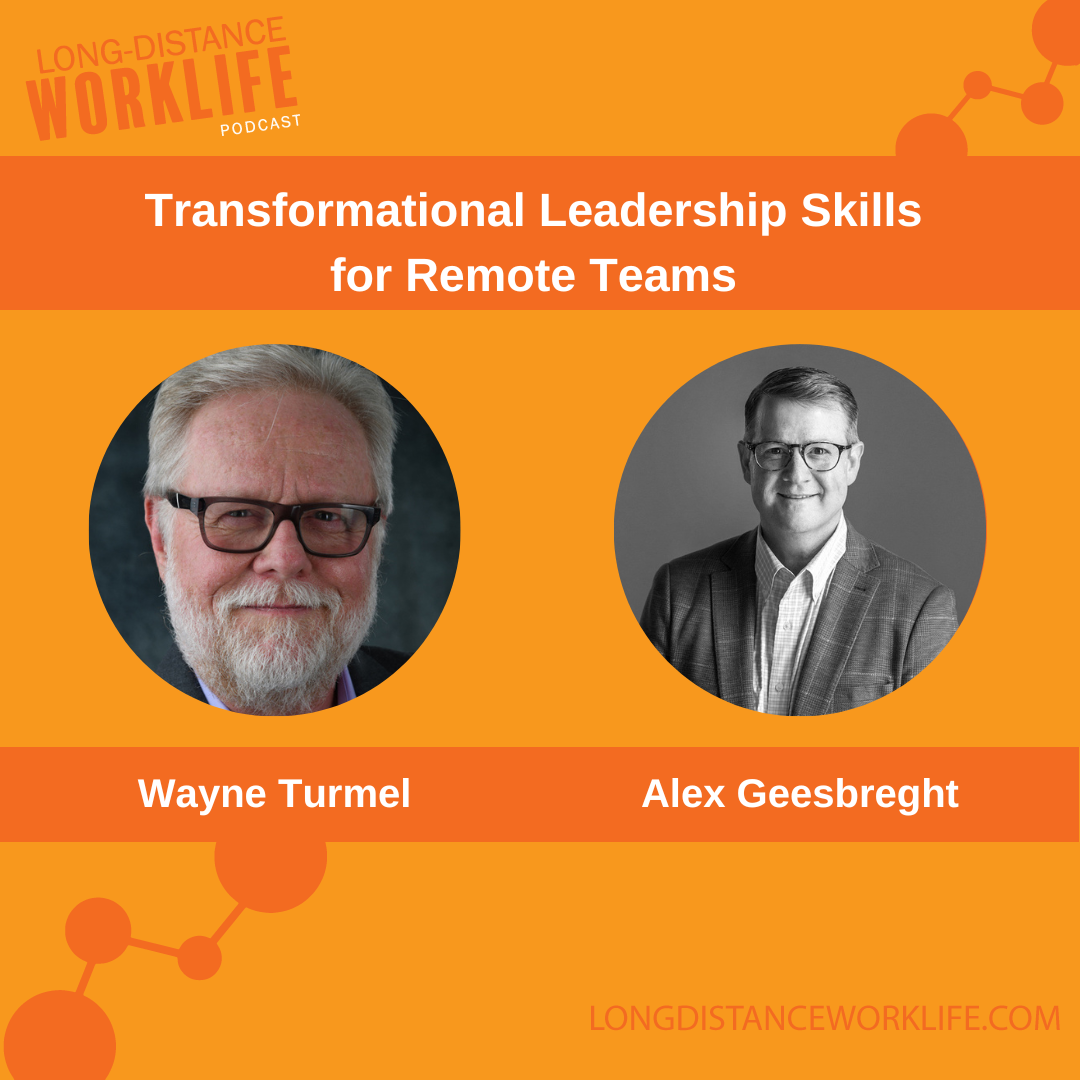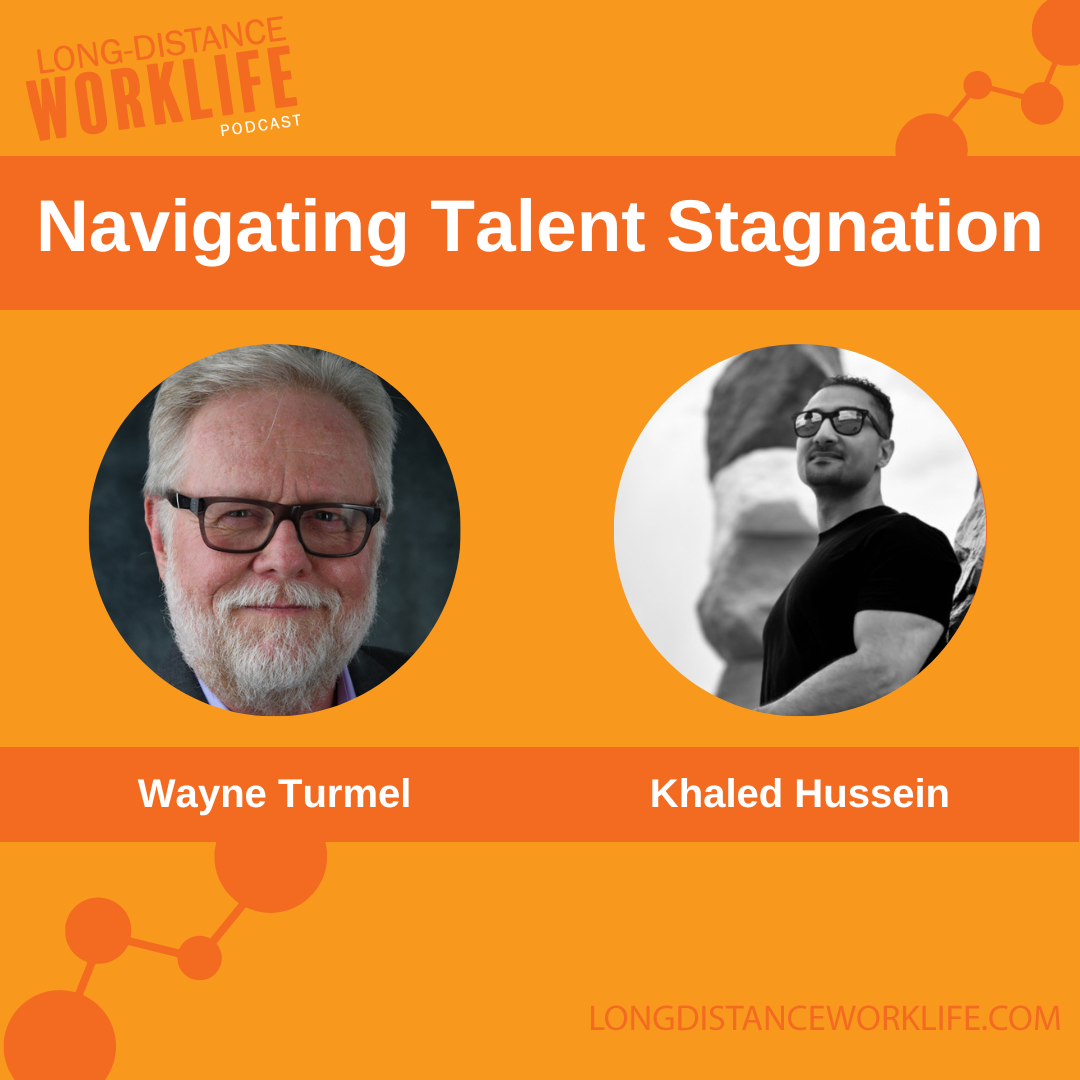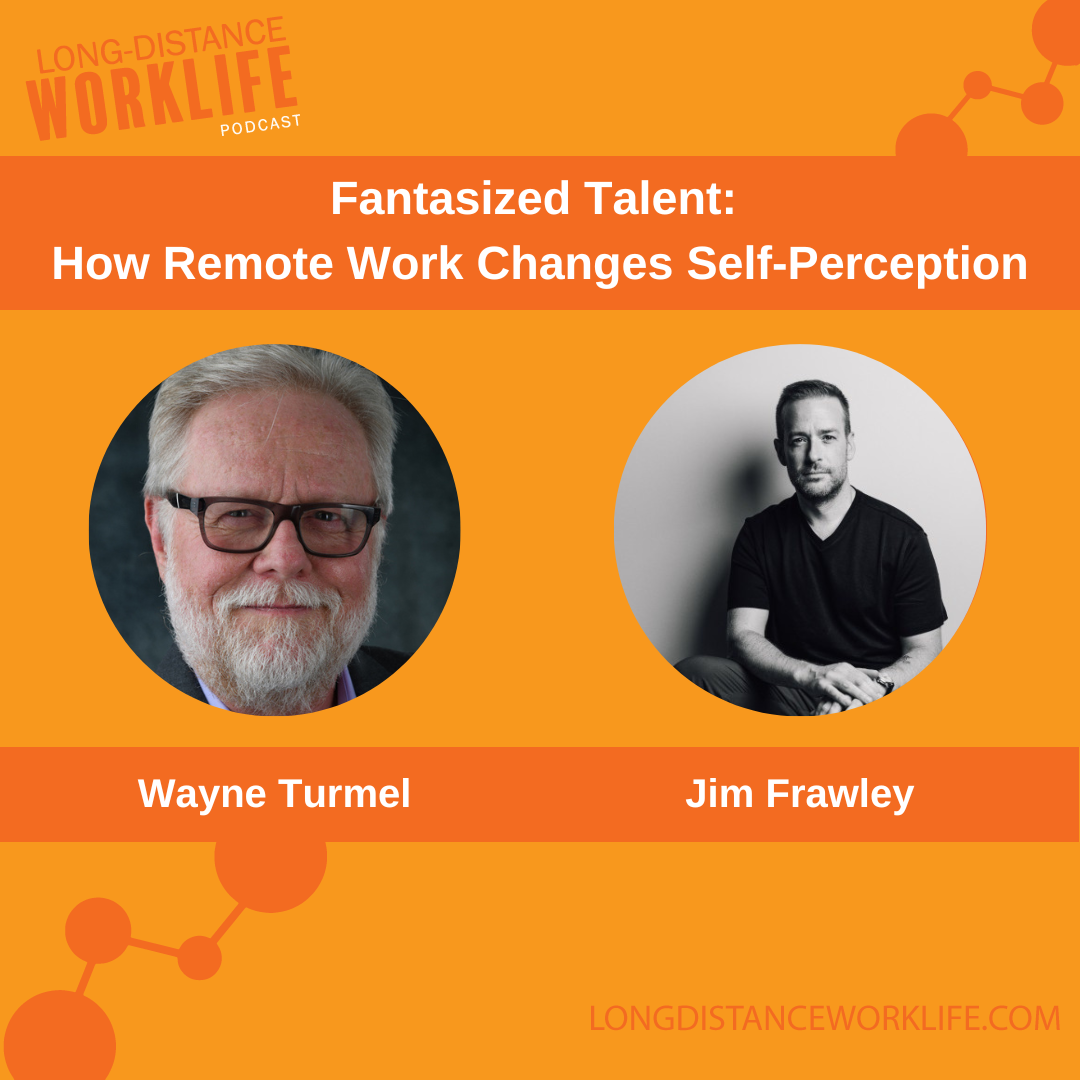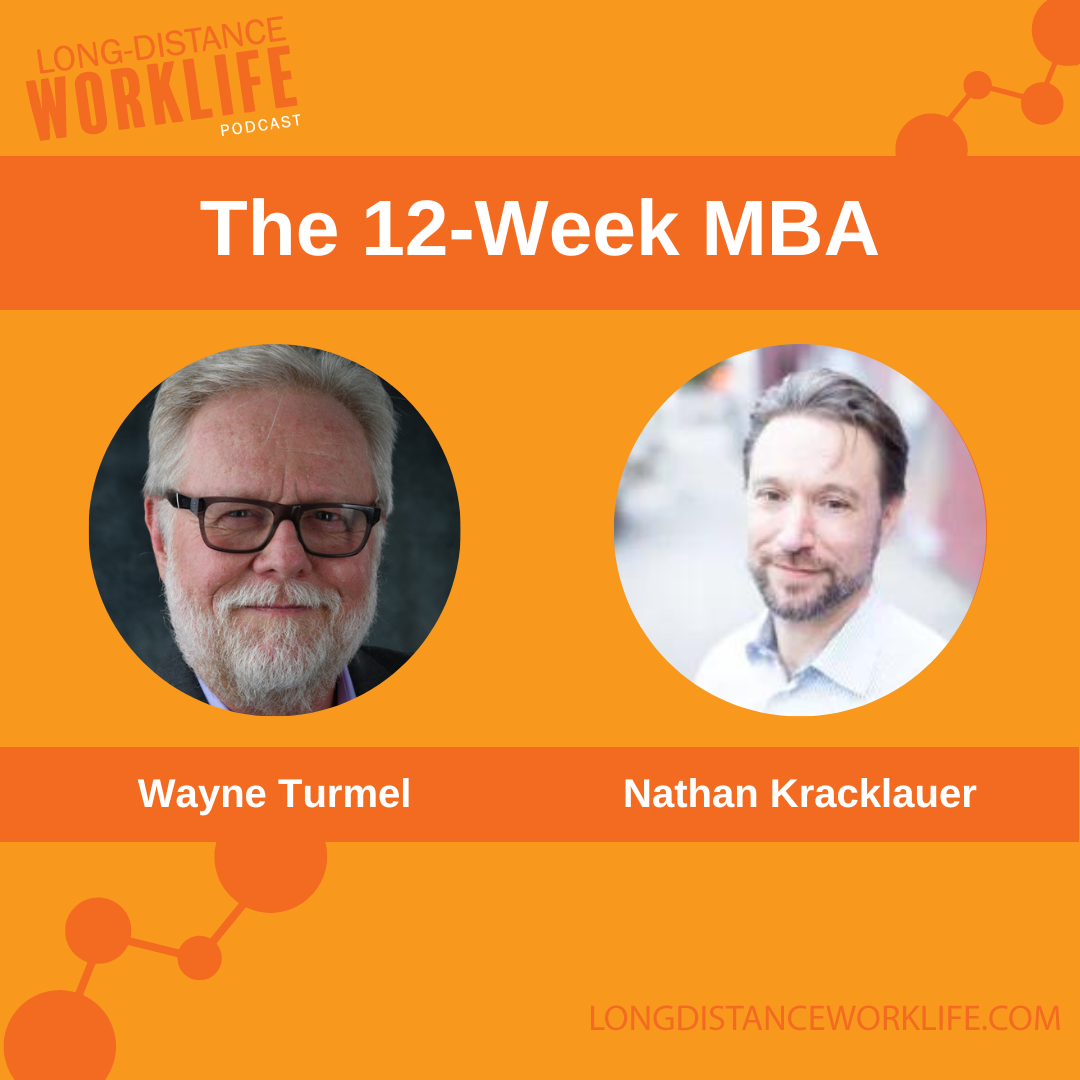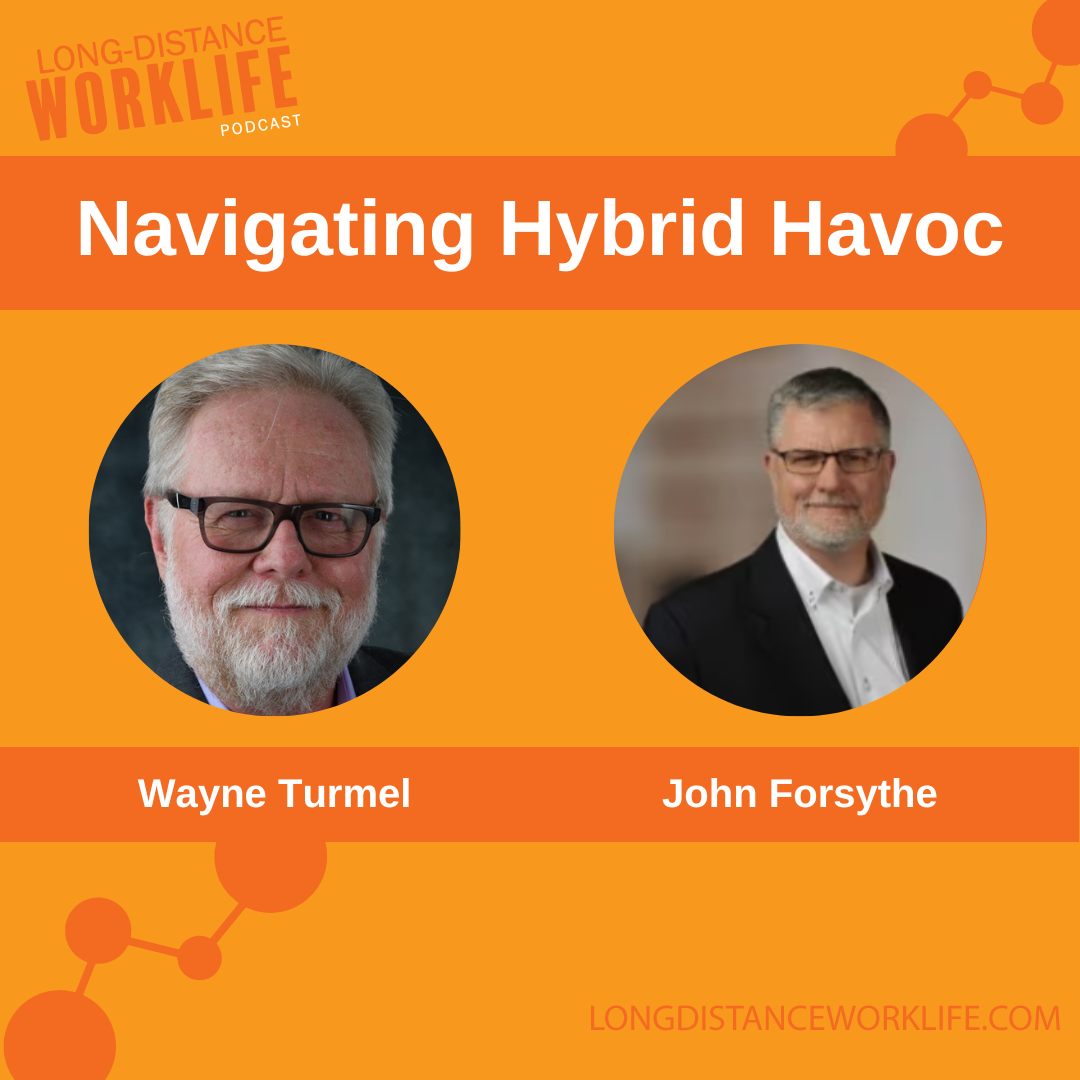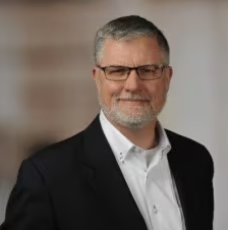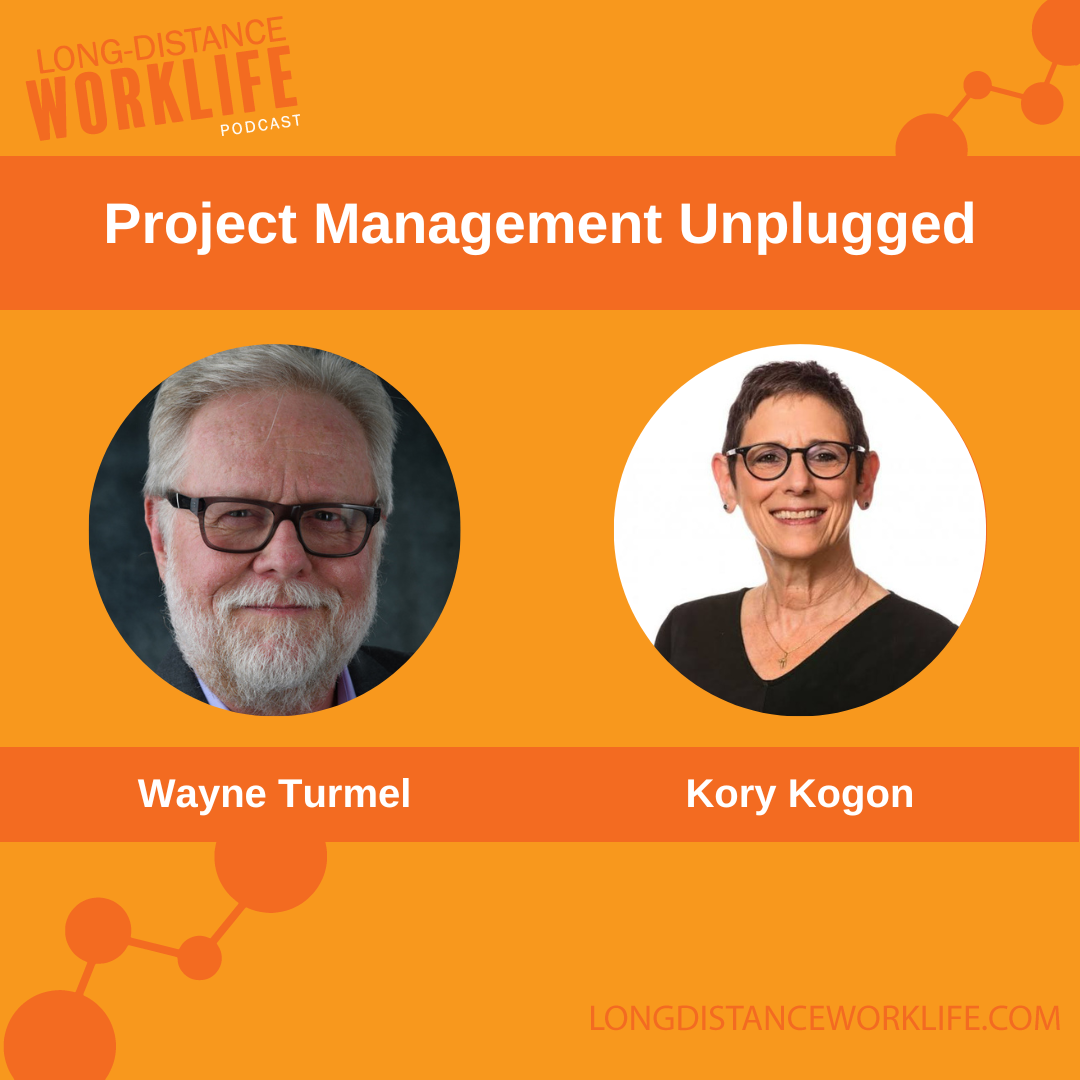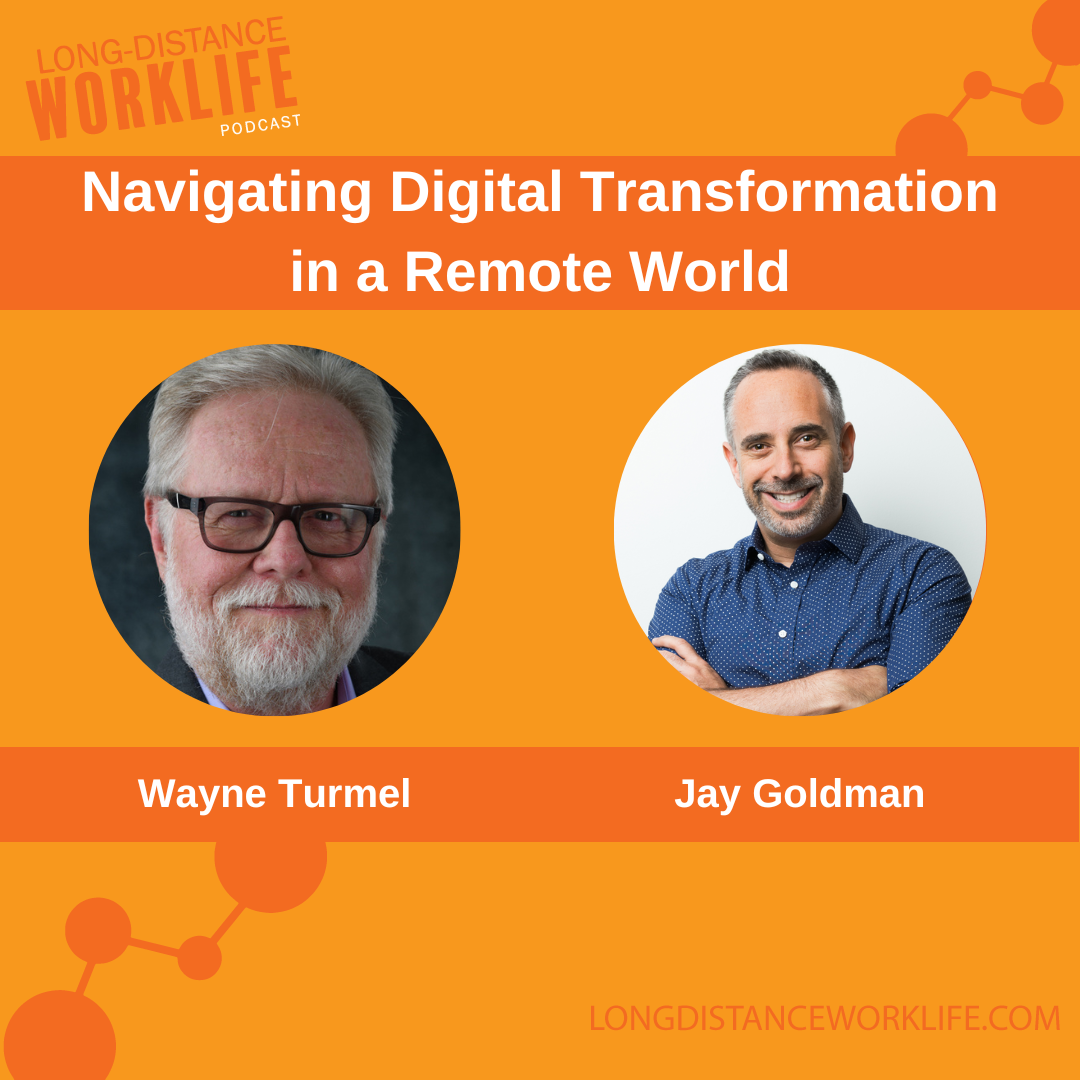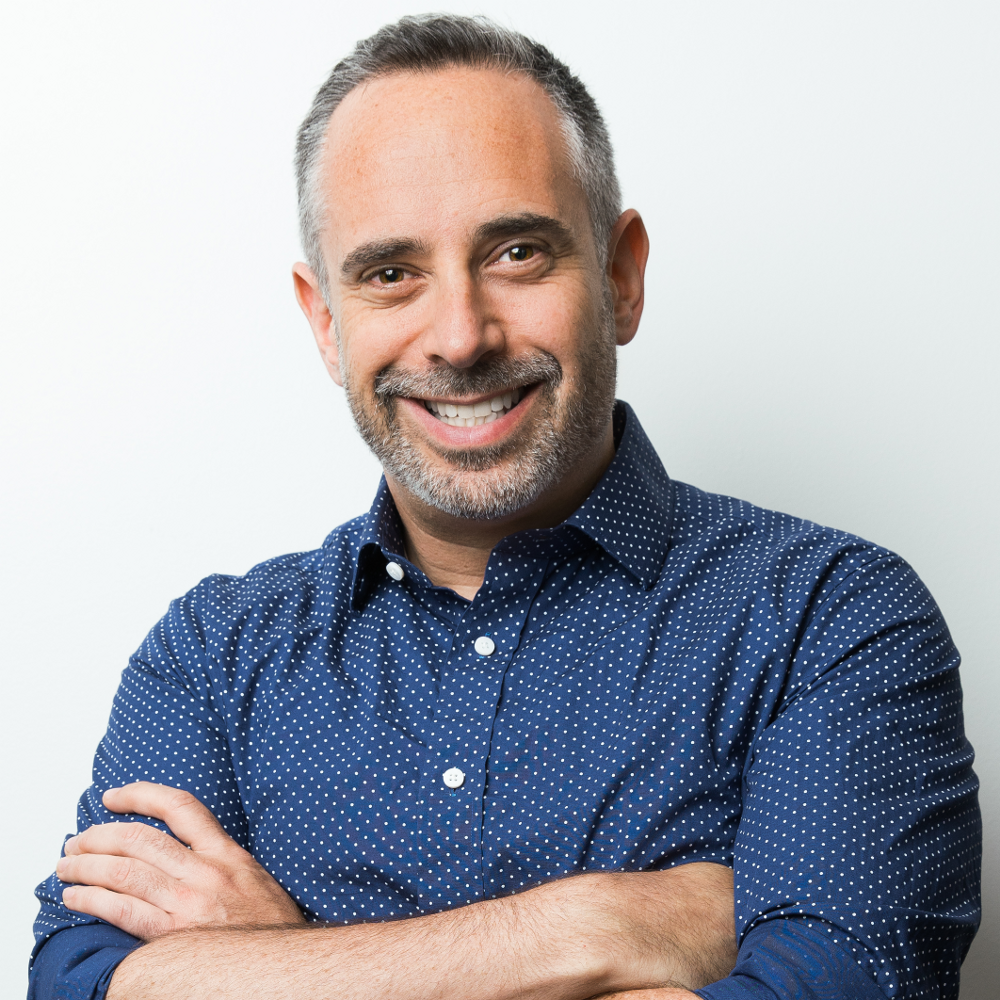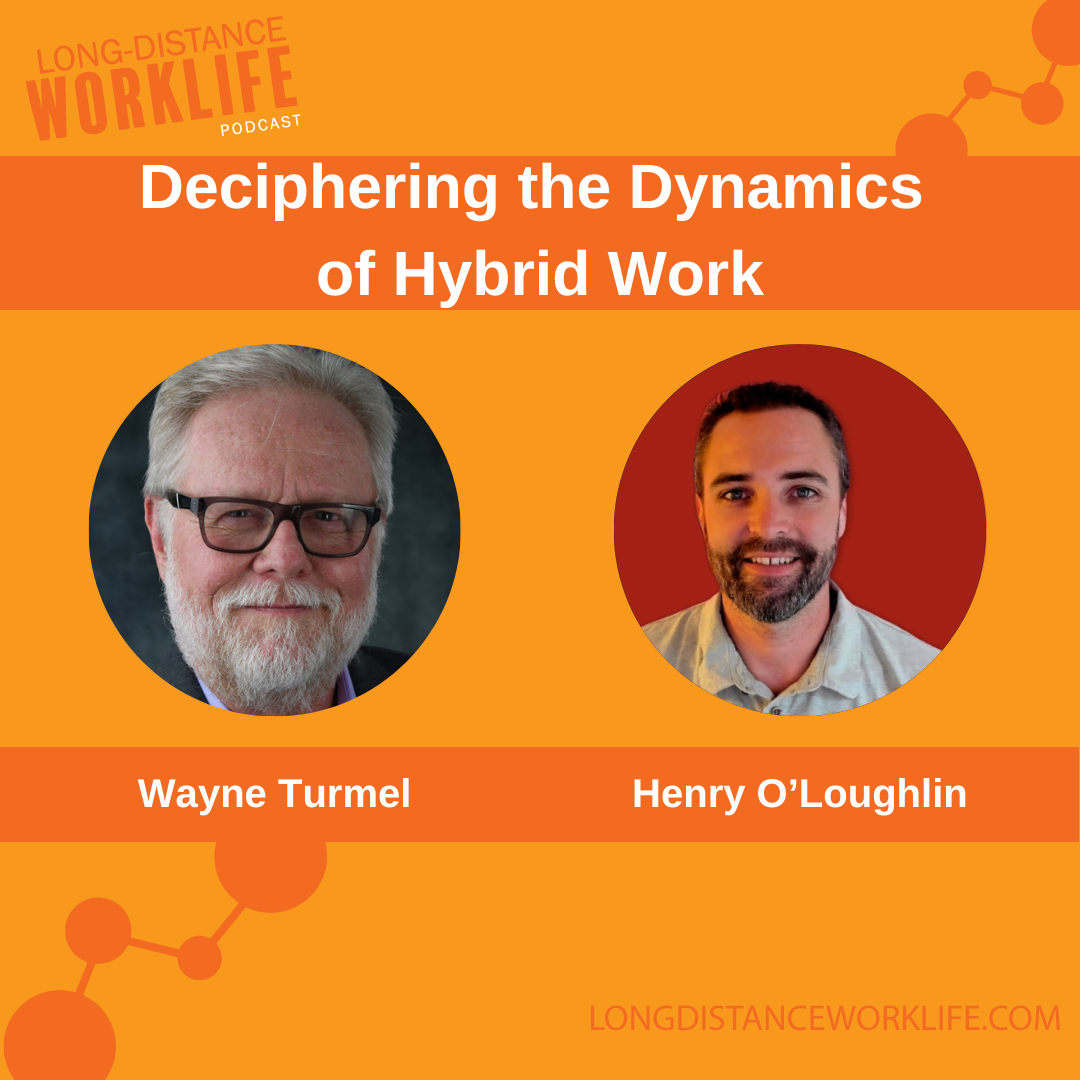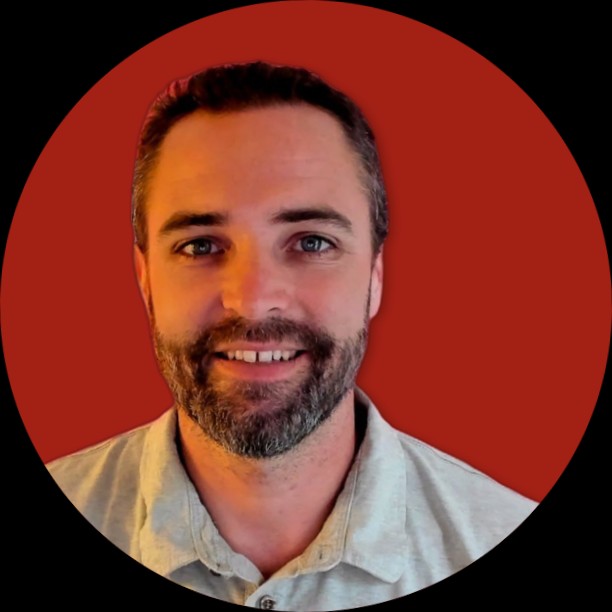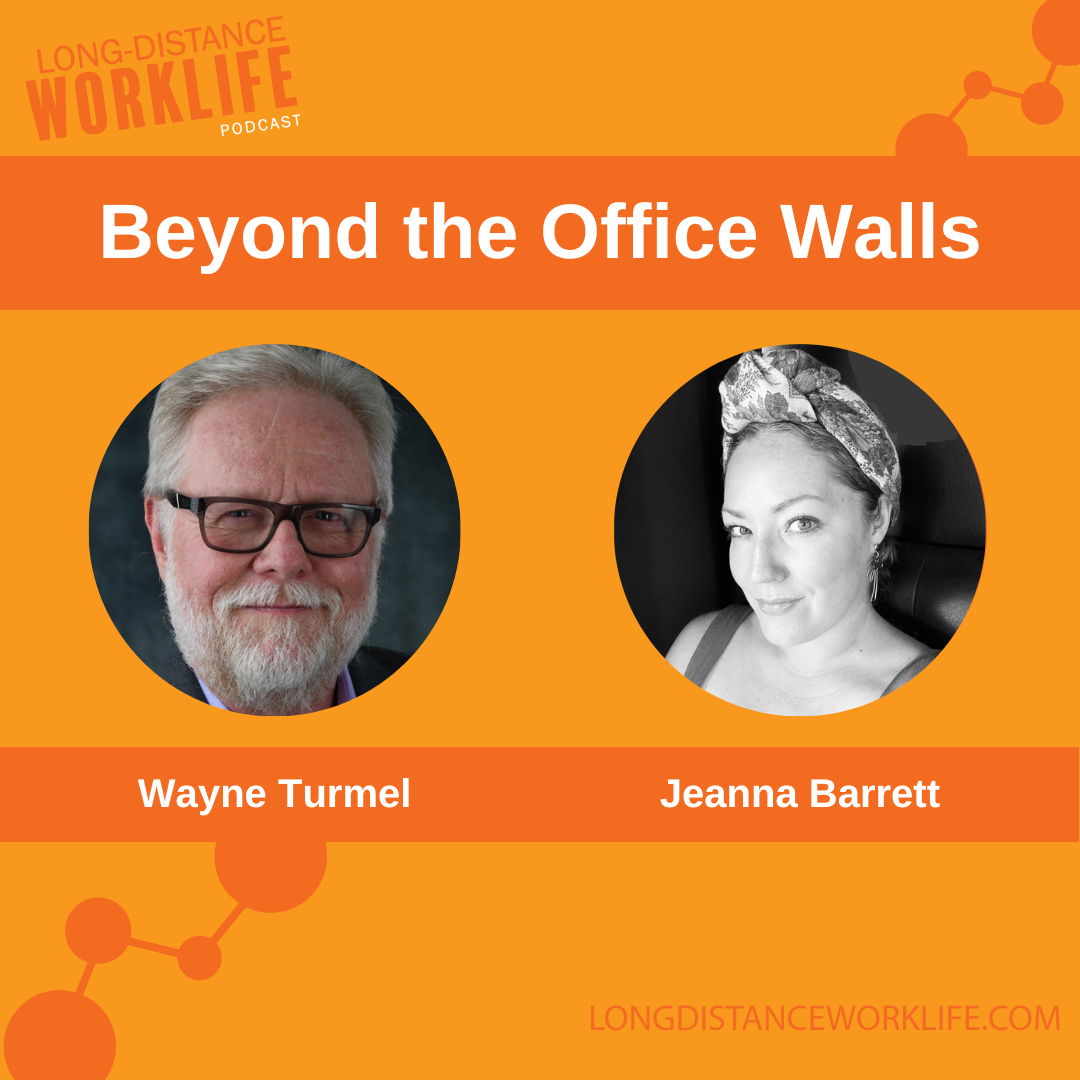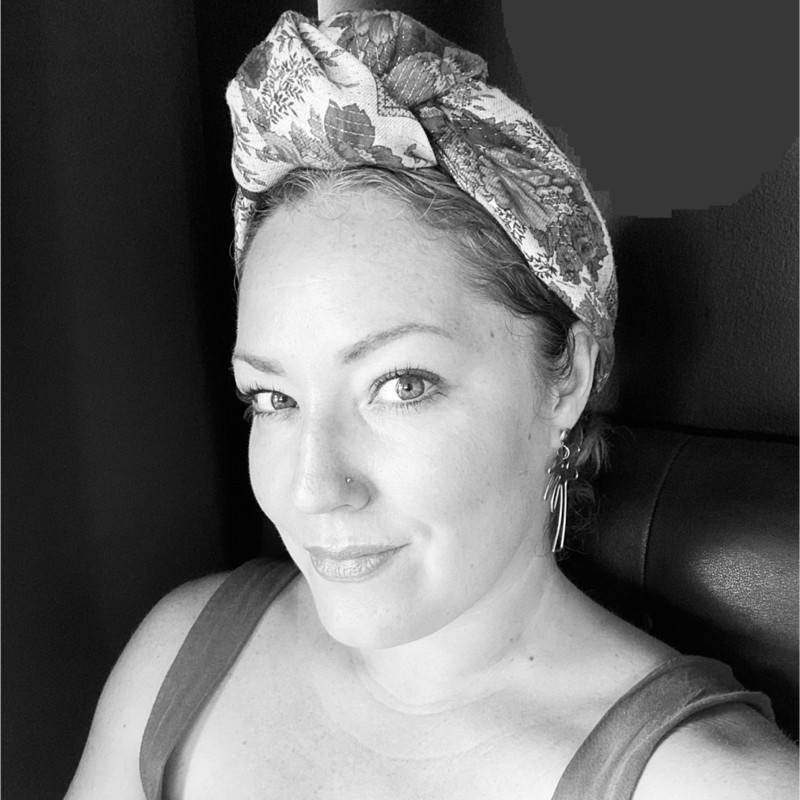In this episode of The Long-Distance Worklife, Wayne Turmel sits down with Dr. Jessica Kriegel, Chief Scientist of Workplace Culture at Culture Partners, to explore the true essence of workplace culture. Dr. Kriegel challenges the common misconceptions that culture is all about perks like ping-pong tables, explaining instead how an adaptive culture—one that evolves with changing circumstances—is crucial for driving results. They discuss the pitfalls of trying to return to pre-pandemic office norms and why forward-thinking leadership that embraces the new realities of remote and hybrid work is essential for organizational success.
Key Takeaways
1. Understanding Culture: It’s not just “how we do things here” but a strategic tool to achieve organizational goals.
2. Adaptive Culture: The most successful organizations are those that can adapt to change, as demonstrated by research.
3. Post-Pandemic Work: The idea of “returning” to the office is flawed; instead, companies should focus on evolving.
4. Creating Impactful Experiences: Culture is shaped by the experiences we create, whether in-person or virtual.
00;00;08;03 - 00;00;34;01
Wayne Turmel
Hello, everybody. Welcome. Welcome to the long distance work life. My name is Wayne Trammell. I am thrilled to be with you. This is the podcast to help you thrive. Survive, generally. Keep the weasels at bay in the crazy and constantly evolving world of remote and hybrid work. we have a really, really good show today. We are going.
00;00;34;04 - 00;00;58;09
Wayne Turmel
We sadly do not have Marissa with us, but what that means is we get to meet somebody else. Really cool. And in this case, that person, I say bringing her into the room is Jessica Kriegel, who is the brains behind Culture Partners and Jessica. who are you and what does culture Partners do? And then we'll get into our conversation.
00;00;58;12 - 00;01;19;18
Dr. Jessica Kriegel
Well, thank you for having me. I am Doctor Jessica Kriegel. I'm the chief scientist of workplace culture at Culture Partners and Culture Partners. As a workplace culture consulting firm that is focused on helping organizations drive results. That's what we do. We help companies get the results that they're trying to achieve. And the way that we go about doing that is through activating their culture.
00;01;19;20 - 00;01;44;23
Wayne Turmel
Okay, so there are about four things that you said there that worthy of diving in. And I'm going to start with the one that kind of catches people off guard, which is the idea that you are the culture scientist. Yes. Other than working for Dannon yogurt, I do not know that I have ever met a culture scientist before, so what the heck you want?
00;01;44;24 - 00;01;51;18
Dr. Jessica Kriegel
I have not heard the yogurt metaphor or analogy to my title before. That's a good one.
00;01;51;21 - 00;01;54;10
Wayne Turmel
so what the heck does a culture scientist do?
00;01;54;11 - 00;02;20;06
Dr. Jessica Kriegel
He asks. Yeah. I mean, my job is to research best practices in what gets results and culture is, you know, let's start there. Because so many people view culture as something that's touchy feely or woowoo and ultimately it's deeply misunderstood because people are trying to solve culture issues with ping pong tables and virtual pizza parties, and those things are fun.
00;02;20;06 - 00;02;43;02
Dr. Jessica Kriegel
Maybe if you like those things, but they're not culture. We view culture as the way that people think and act to get results. So as a scientist of culture, my job is to understand how do we get people to think and act in the way that we need them to think and act in order to get results? That works for them and works for the company over the long term.
00;02;43;05 - 00;02;57;27
Wayne Turmel
Yeah. I mean, there are a lot of definitions of culture. The one that I usually work with is this is how we do it here, right? Right. And how we do it somewhere else, which is different than somebody else does it. But what is the it.
00;02;58;00 - 00;03;18;21
Dr. Jessica Kriegel
Right. The reason this is how we do it here is I don't know how to scale. This is how we do it here or how to shift. This is how we do it here. That gets us pretty stuck into one kind of culture. And we did research last year with Stanford University to help finish answering that question about how do we actually do the research?
00;03;18;25 - 00;03;49;10
Dr. Jessica Kriegel
We partner with academic institutions and other organizations that are interested in this stuff. And last year with Stanford, we looked at what of all the different culture dimensions, which one actually wins to drive revenue growth? Just very simply, revenue growth is the focus in that particular study to show the results, orientation of this impact of this work. And what we found was an adaptive culture, was the kind of culture that always won the most for far above all other type of cultures.
00;03;49;16 - 00;04;10;05
Dr. Jessica Kriegel
So an adaptive culture is not getting stuck in one culture. It's about being able to shift from one to the next and the next and pivoting when technology changes, when our circumstances change, when our competitive environment changes, that that is actually the skill is is not just choosing one and getting stuck in the way we do things around here.
00;04;10;05 - 00;04;13;00
Dr. Jessica Kriegel
That can be a death knell for your culture.
00;04;13;02 - 00;04;44;00
Wayne Turmel
Well, that, of course, leads us to the next thing, which is the big push back after Covid. Yeah, everybody got scattered to the winds and then they said, no, you're coming back in. And we're hearing more and more even from companies where you maybe don't expect it, like zoom, zoom, Google. In fact, the zoom is calling people into the office just drips with an irony that does not even begin to be described.
00;04;44;03 - 00;05;06;24
Wayne Turmel
but the reason for that over and over and over again, we're told, is, well, we need to keep the company culture. And the only way to do that is to have people in the same building at the same time, at least part of the time. And I'm willing to bet that you probably view it differently.
00;05;06;26 - 00;05;31;06
Dr. Jessica Kriegel
Yeah. so think about the language that leaders are using to get people back to the office. Back right. Or we need to return to the office return. These are all backwards looking phrases that we need to use to go back to how it was before Covid. And for some organizations, they've been remote for a long time. I was an Oracle for ten years.
00;05;31;06 - 00;05;55;13
Dr. Jessica Kriegel
I started in 2008 and I was working remotely. So this isn't just a Covid thing. This has been a slow transition that got accelerated due to Covid, but we cannot go back because to go back and to return to this way that it used to be inherent in that is the idea that Covid was simply a pause and that the pause has been unpause.
00;05;55;18 - 00;06;19;12
Dr. Jessica Kriegel
And now we can go back to how it was before, as if Covid wasn't transformational to our social psychology, to the norms and behaviors of how we operate. We saw a different way. And you can't go back. You can't undo do this complete transformation of everything about the way that we work. Now. Some people will go back into the office because that's what they want to do, and they like it that way, and that's fine.
00;06;19;14 - 00;06;38;13
Dr. Jessica Kriegel
But I think that those companies are failing to adapt. And I just told you that the culture that wins and gets the most results is the culture that can adapt and move forward. And if you're stuck and trying to go back, you're not working on that fundamental progress that needs to happen in any organization to innovate and grow.
00;06;38;15 - 00;06;51;19
Wayne Turmel
Yeah. I mean, it's so funny. People misquote Darwin all the time. They always say it's survival of the fittest and it's not. It's the creature that learns to adapt is what survives. Right?
00;06;51;22 - 00;06;53;25
Dr. Jessica Kriegel
Did he really not say survival of the fittest?
00;06;53;25 - 00;06;56;10
Wayne Turmel
He did not. He never used that phrase.
00;06;56;12 - 00;06;58;27
Dr. Jessica Kriegel
Wow. Who said that? Was it the. Who's the other.
00;06;58;27 - 00;07;00;25
Wayne Turmel
Somebody that read him in the market?
00;07;00;25 - 00;07;06;05
Dr. Jessica Kriegel
It was that other guy that also did evolution. Anyway, we're on a tangent, but that's fascinating. I gotta go double check that.
00;07;06;05 - 00;07;22;07
Wayne Turmel
If that's when you get a couple of geeks together. This is the kind of conversation that you wind up having. Ladies, we can't go back to the before times and we can't write clearly the big concern, the thing that we hear is we're worried about culture and and.
00;07;22;10 - 00;07;25;27
Dr. Jessica Kriegel
Losing, you know, losing our culture. Have you heard.
00;07;25;28 - 00;07;33;22
Wayne Turmel
Losing our culture like the before times was some glorious time where there were no problems and everything worked just fine?
00;07;33;24 - 00;07;35;02
Dr. Jessica Kriegel
Yeah.
00;07;35;05 - 00;07;36;03
Wayne Turmel
Yeah.
00;07;36;05 - 00;07;57;12
Dr. Jessica Kriegel
I mean, like, where did the culture go? If we're losing it? I would love to know the island of lost cultures, you know? I mean, that doesn't even make any sense. So yes, the, the, the saying goes that if we don't get back to our together, we're going to lose our culture. What makes us who we are. And the reality is of cultures, the way that people think and act to get results.
00;07;57;17 - 00;08;18;22
Dr. Jessica Kriegel
Well, we're still thinking virtually and we're still acting virtually. So let me break down what we think culture really comes down to where it emerges and what it results in. So, you know, every company is trying to get results. Where do results come from? They come from our actions. We do stuff and that stuff produces a result right?
00;08;18;24 - 00;08;42;07
Dr. Jessica Kriegel
Our actions come from our beliefs. We have beliefs about the nature of the work we're doing, about what drives meaning in our lives, about whether it's worth it about each other. Right? Those beliefs are what drive our actions, and that is how we think. And so if you want to change how people think, their beliefs and their actions, then you have to create experiences for them.
00;08;42;07 - 00;09;01;22
Dr. Jessica Kriegel
Because all of our beliefs come from experiences that we've had. Why do I believe that you're a nice guy? It's because of the experience we had in our email exchanges and in the conversations we've had. Those experiences led me to a belief that took me to take an action, which is to join you today, and that's going to get you a result, which is an episode that people will listen to right now.
00;09;01;29 - 00;09;22;17
Dr. Jessica Kriegel
And the episode that result is an experience, too, that they're having that will lead them to a belief about the nature and power of working from home and culture or not. Right. And that's going to lead them to take an action and that's going to get a result. And so it's the cycle. That's culture. So it really if you want to influence culture, you start at the experience level.
00;09;22;17 - 00;09;42;09
Dr. Jessica Kriegel
What experiences can I create for people. And virtually getting an email is an experience. Getting a text message is an experience. Having a zoom call is an experience. Just like bumping into someone in the hallway was an experience. Having lunch at the cafeteria was an experience. But the experiences don't stop just because we're doing it in a different format.
00;09;42;12 - 00;10;02;11
Dr. Jessica Kriegel
And the kindness that you show me in those virtual experiences lead to a belief, or the bitterness, or the short nature of your emails or texts or whatever, all of that. We just have to be intentional of the experiences we create, no matter what the delivery mechanism of that experience is.
00;10;02;13 - 00;10;26;25
Wayne Turmel
Okay, so before you continue, because I know we pulled the string in your back and and you're off and that's great. We dig that. But you said something that I think we need to highlight and that is this notion of experience. And there are two parts to this. The first is if your experience with somebody is purely transactional.
00;10;26;27 - 00;10;40;03
Wayne Turmel
Hey, can you send me that file? Here it is. If their experience is purely transactional, it's not going to create a bond, a relationship, a psychological emotional connection.
00;10;40;05 - 00;10;40;24
Dr. Jessica Kriegel
Exactly.
00;10;40;25 - 00;11;11;03
Wayne Turmel
They have with people. Right. So we need to crank that up and have different types of experiences. But let's talk about the word experi sense. what do we need to be aware of? What kind of experiences? Virtually do we need to do that maybe used to happen organically, or at least unconsciously, when we were all in the same mosh pit.
00;11;11;05 - 00;11;38;13
Dr. Jessica Kriegel
It's all about coming from the heart in the experiences that you create and doing it, doing it intentionally. So some examples of experiences that happen virtually is me calling you and recognizing you for something that you've done, giving you feedback, either positive feedback or constructive feedback about some thing that happened. Telling you a story about something that you weren't even involved in that someone else did that was really wonderful.
00;11;38;19 - 00;12;01;06
Dr. Jessica Kriegel
That's an experience. Last night, you know, I got this big interview this week for my show, and I was really proud of it, and I did a lot of work to make it go well. And last night my boss called me he that the show got released yesterday and he called me and said, I just listened to the interview and I took notes and I want to share them with you.
00;12;01;06 - 00;12;25;24
Dr. Jessica Kriegel
And he spent 20 minutes basically reading me his notes about all of his favorite parts and why that was powerful and what he thought was a good question. And it was all positive feedback. And at the end he was like, so that's what I thought the the time and attention and thoughtfulness that he took to give me that feedback was so impactful because it was an experience that like, wow, he really cares about the work that I do.
00;12;25;27 - 00;12;44;25
Dr. Jessica Kriegel
He could have just as easily sent a text that said, great interview, exclamation point, exclamation point, and I would have felt good, but it didn't go the extra mile that he took. Both of them were virtual, right? But it's about coming from the heart and giving someone an experience in the way you communicate with them.
00;12;44;28 - 00;13;00;25
Wayne Turmel
And you said something again, you know, there are micro cultures and macro cultures. There's micro culture of your specific team. There's the macro culture of your organization. This simple way to kind of divide it.
00;13;00;27 - 00;13;01;07
Dr. Jessica Kriegel
Yeah.
00;13;01;14 - 00;13;34;00
Wayne Turmel
My experience and maybe you can speak to this. My experience is it is fairly easy for an individual team to intentionally form a culture. The nuclear team is very much like the nuclear family, right? There's mom, dad and the kids. Yeah, and they're a tight unit. But inside the larger organization, the interactions don't always happen virtually. They don't experience each other the way they do when they share an office space and they're bumping into people.
00;13;34;02 - 00;13;50;12
Wayne Turmel
So can you. We'll just step aside from the micro culture for a moment. How do you intentionally or what kind of experiences can you create to help influence the macro culture, as opposed to just your particular team?
00;13;50;14 - 00;14;19;17
Dr. Jessica Kriegel
Yeah, that's a great question. And that's really what we do with our clients. So, you know, most culture consultants, they go into a company and they start by digging up all of the dirt. So they interview people and they do focus groups and they do surveys. And they're asking what's broken here, what doesn't work? And then they come up with a list of 20 things that they found, and then they present this list to the executives and say, well, here's everything that's broken that needs to be fixed, and we can do that for you for the low, low price of $5 million or whatever it is.
00;14;19;17 - 00;14;42;26
Dr. Jessica Kriegel
Right. And so we don't do that. We start with, what result do you want to achieve? What is the goal? Give me a key result. We call them, which is a meaningful, measurable, memorable number that you want to achieve. And then let's reverse engineer that number to figure out what beliefs people need to hold in order to take the right action to get that result.
00;14;42;29 - 00;15;12;25
Dr. Jessica Kriegel
And once you understand those beliefs and you're really explicit about them, you label them and you identify what they mean. Then you intentionally create experiences across all levels of the organization to drive those beliefs. So, for example, at Culture Partners, we have a cultural belief of taking accountability. That's one belief we know needs to be held in order for people to take the right action for us to get our result, which is we want to impact 5 million lives in 2025.
00;15;12;25 - 00;15;40;01
Dr. Jessica Kriegel
It's a measurable number. It's meaningful and it's memorable 5 in 25. So we know people need to take accountability. So we recognize when people do take accountability and we give feedback to people when they're not taking accountability. And we tell stories about taking accountability and always tying what the action was that they did to that belief of taking accountability and reinforcing that that's going to help us get to five and 25.
00;15;40;04 - 00;16;05;21
Dr. Jessica Kriegel
So we're being explicit in our language about the things that are usually implicit. Whereas usually feedback looks like great job on that presentation here. He says. In this presentation you did x, y, and Z. By doing that, you demonstrated the belief of take accountability, and that's going to help us get to five and 25. And so it's a self reinforcing system that we help organizations implement at the macro level.
00;16;05;27 - 00;16;15;05
Dr. Jessica Kriegel
And everyone owns culture in that way because everyone is responsible to use the tools to reinforce the explicit cultural beliefs to get the results.
00;16;15;07 - 00;16;35;19
Wayne Turmel
Okay. Can you give me a I'm sure you can. Will you give me a specific example of something that an organization did to kind of expand that across divisions, across functions, something very specific?
00;16;35;22 - 00;17;00;26
Dr. Jessica Kriegel
Yes. We are working with a medical institution. And this, the client was the director of the emergency department. And there we said, what's the result? You want it? We always start with results. Right? And they said, we only gather next of kin information for incoming patients 42% of the time. We need to collect it every time. So we looked at the action was people were not filling out the form.
00;17;00;26 - 00;17;24;13
Dr. Jessica Kriegel
So she had tried already to fix that number. Through a bunch of actions, she would try translating the form, simplifying the form, training people on the form. She'd actually spent six months on this, and after six months, she was able to increase the gathering of the form to 47%, which is like 5% growth barely moved the needle. Six months of effort shifting the shift schedule to get people out of work to do the training.
00;17;24;13 - 00;17;42;01
Dr. Jessica Kriegel
It was a laborious project and it cost money and it barely worked. So the belief we were like, what's the belief getting in the way? She's like the belief that these people have is that it's a waste of their time. They're trying to save lives. People come in in emergency situations and I'm trying to get them to stop and do paperwork.
00;17;42;01 - 00;18;12;07
Dr. Jessica Kriegel
Like it just doesn't feel important. Right. And the experience that they were having was nag, nag, nag, do the paperwork. And there is generally tension in the health care community around patient experience and data entry. Right? That's not an uncommon issue. So we helped her identify stories in this case where the experience that she could use to create a new belief, and she told two true stories from that emergency department of patients that had come in.
00;18;12;07 - 00;18;32;04
Dr. Jessica Kriegel
One was a woman. She was, in an emergency situation came in. They did not gather her next of kin information. They treated her when she fell unconscious, but she died. They later found out that she had had a, a condition that if they had known about by calling the next of kin, they might have adjusted the protocol and been able to save her.
00;18;32;07 - 00;18;55;23
Dr. Jessica Kriegel
The second patient, different time, same hospital came in. They did gather as next of kin information. He fell unconscious. They called the daughter. The daughter informed them about his medications, and they adjusted protocol and they saved his life. She told those two stories for three weeks, and in three weeks they started gathering next of kin information. 97% of the time the belief changed.
00;18;55;25 - 00;19;08;01
Dr. Jessica Kriegel
This is important. This is part of the process of saving lives. It's not just paperwork. And they started taking a new action. That's culture creation in action at scale.
00;19;08;03 - 00;19;35;29
Wayne Turmel
That is fabulous. doctor Jessica Kriegel, thank you so, so much for being with us on the long distance work life. If you are interested, ladies and gentlemen, in contacting Jessica culture. partners. Partners, listening to the Culture Leader podcast, we will have links to all of that good stuff in our show notes at Long distance work life.
00;19;35;29 - 00;20;01;29
Wayne Turmel
Dot com. Jessica, thank you so much for being with us. And ladies and gentlemen, boys and girls, thank you. If you enjoyed today's conversation. And I can't believe, frankly, that you didn't, you know, like and subscribe. You know how podcasts work. We're trying to grow our listenership. You we want to find more smart people like you who want to, learn how to do this better.
00;20;02;02 - 00;20;28;24
Wayne Turmel
Also, on the subject of doing it better, shameless plug time. September 17th is the publication date for the new edition of The Long Distance Leader Revised Rules for Remarkable Remote and Hybrid Leadership. the original came out in 2018. The world has changed since then. Our book is new. It's exciting. We talk about culture. We talk about hybrid teams.
00;20;28;29 - 00;20;58;13
Wayne Turmel
Please, please, please, wherever you get your books from. And of course, there is, a place you can find all of this. Our, long distance leadership series of classes. We have a new one that begins in late September. You can find that at Kevin eikenberry.com/lds, LDS, less LDS is a very different thing. no judgment. It's just a different thing.
00;20;58;13 - 00;21;25;09
Wayne Turmel
Darn it. if you want to reach out to myself or to Marissa, show ideas, guest ideas, questions, pet peeves, things you'd like us to, talk about and discuss on the show. We are easy to find. Thank you, thank you, thank you for joining us. We will be back next week with another episode. This time, Marissa and I will be there.
00;21;25;11 - 00;21;30;19
Wayne Turmel
Thanks for joining us on the long distance work life. Don't let the weasels get you down. Hey.
Featured Guest

Name: Dr. Jessica Kriegel
Bio: Jessica Kriegel is the Chief Scientist of Workplace Culture for Culture Partners, leading research and strategy in best practices for driving results through culture. For 15+ years, Jessica has been guiding global, national, Fortune 100, and other organizations across finance, technology, real estate, and healthcare industries on the path to creating intentional cultures that accelerate performance. As a keynote speaker, Jessica leverages her current research and 15+ years of global organizational culture innovation, providing leaders with the map and tools for how to build cultures that deliver results.
Timestamps
0:00 Introduction to Dr. Jessica Kriegel and Culture Partners
3:00 What Does a Culture Scientist Do?
6:45 The Importance of Adaptive Culture Post-COVID
10:20 Debunking the Myths of Company Culture
14:10 The Power of Intentional Experiences
18:30 Case Study: How Culture Change Saved Lives
21:00 Closing Remarks
Related Episodes
Additional Resources
Pre-Order The Long-Distance Leader
Perfect your remote leadership skills with the updated edition of "The Long-Distance Leader" by Kevin Eikenberry and Wayne Turmel, featuring new principles and proven strategies for today's hybrid work environments.
